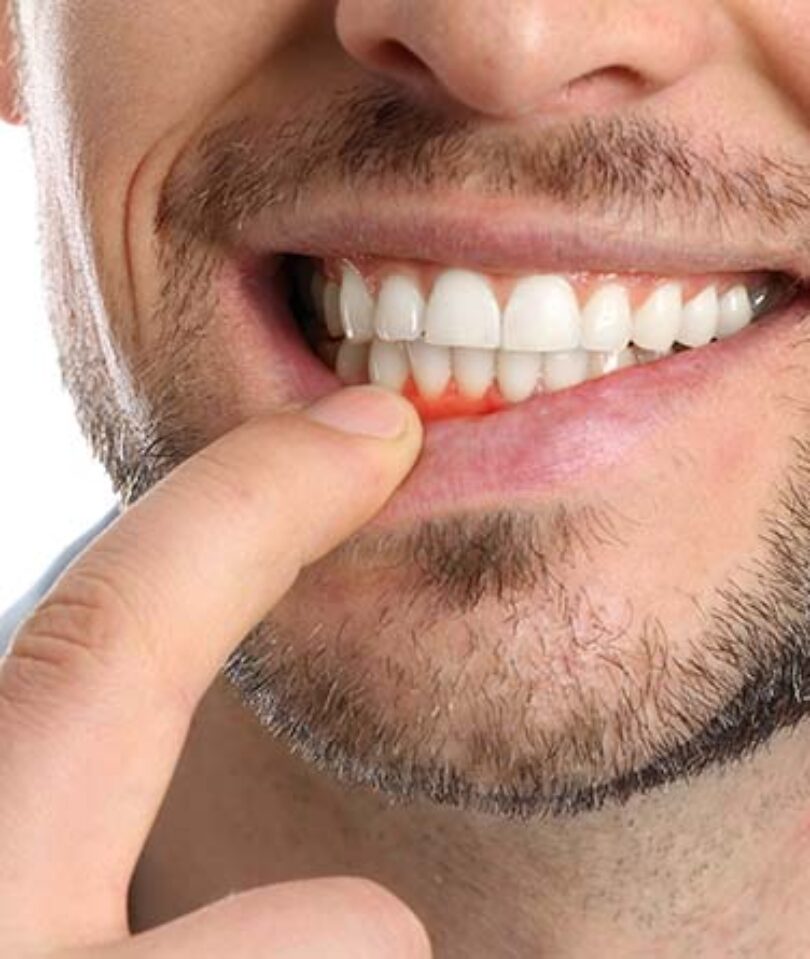Periodontal disease affects the gums, bone and other supporting tissues of the teeth. Most individuals suffer from gum inflammation from time to time known as gingivitis. If untreated gingivitis has the potential to progress to periodontitis resulting in bone loss. Up to 50% of the population can suffer with the milder forms of periodontitis and around 10% of the population appear to suffer from the more severe forms of the disease. This group appears to be at greatest risk of losing teeth through periodontal disease. It is caused by the bacteria which regularly collect on the teeth.












